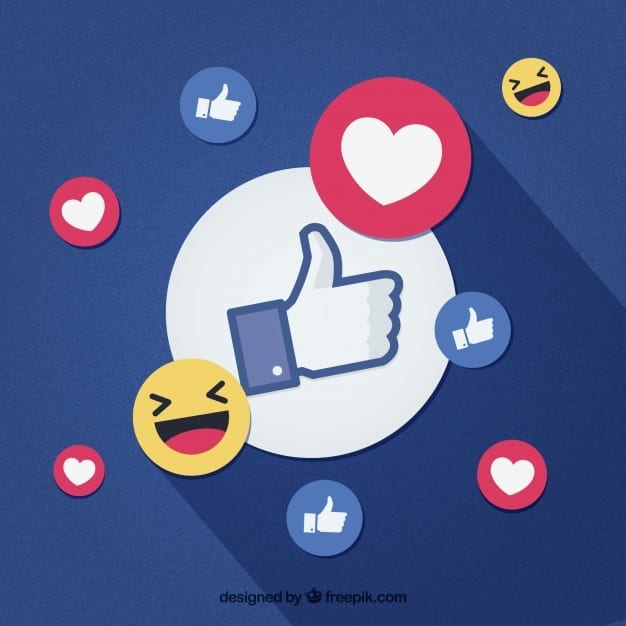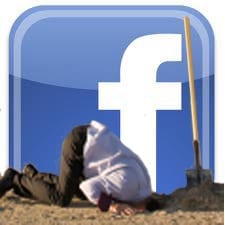Fortune reported on the move by Facebook to test hiking ‘Likes’ from posts. Removing the likes that other people have doesn’t change our need to compare ourselves. It’ll be like holding a balloon underwater–it’ll pop up somewhere since social comparison is hardwired.

It easy to forget, given all the social anxiety about the perceived negative effects of comparing ourselves to others, as if social comparison is a moral failing, that social comparison is instinctive. We do it automatically as part of the survival instinct. Not only that but it works both up and down. If we compare ourselves to people who have achieved something we aspire to, we can be inspired to take action, we can learn from their efforts and benefit from their knowledge. Many of the self-help books are evidence of how someone’s accomplishments or mental reframing can inspire others to make change in their own lives.
Withholding likes means that people will likely just find other ways of warranting desirability. You aren’t going to “cure” the tendency to compare. Without likes, people will use other symbols and markers of status, popularity and validation of who or what’s important to navigate the social landscape. In my mind, it will skew the advantage toward celebrities who have other ways of showing their popularity. Whether its migration to new platforms or new use of markers like hashtags, there will be new symbolic representations to fill in the gap.
Removing likes is pandering to moral outrage but doesn’t change any fundamental drivers. People are always citing statistics to “prove” that social media is bad. Recently, I saw someone support Facebook’s actions by saying that researchers had found that 20% of envy-inducing moments in life were on Facebook. Not sure if likes are actually related to envy but here’s the problem. Data is a dangerous thing. Number look so IMPORTANT and REAL. But even if reported accurately, research is not “truth.” Never believe the word “prove” in the same sentence as “research results.” Statistics are a probability game.
Another problem with stats is that they get cherry-picked to make a point. That stat was real enough (sort of) but they were part of a larger picture if you read the published study. It’s always good to go to the source and read the methodology. Journalists and researchers have different motivations. The study also reported higher levels of positive than negative emotional responses to Facebook use as follows: 43.8% reported positive emotions compared to 36.9% reporting negative. Of the negative, about a third of the negative emotions were boredom.
The findings also show that experiences of envy were more strongly associated with passive use but, in a surprising twist, that passive use had no measurable association with wellbeing. The authors also compare the topics that cause envy online to those that cause it offline. It is to the author’s credit that they include this. We were not envy-free beings until Facebook showed up. Psychology dominates technology every time. Technology might amplify or skew behavior, but it doesn’t invent it.
A lot of research shows that it is how we use social media (like many other things in life) that determines the positive or negative impact (or in this case, association). The key words in these results are “associated with”. The authors do a credible job of creating a model for their hypotheses, but the results are correlational study and exploratory. Exploratory studies are important–it allows researchers to test the viability of models for future, more robust, studies. In this case, it means that we should be very cautious drawing causal conclusions and generalizing broadly.
Removing likes doesn’t change any fundamental drivers. Solutions? This is where I haul out my soapbox about media literacy, critical thinking and self-efficacy. You can’t just tell people to stop something that is inherent. If people are finding themselves negatively impacted by situations that trigger unhealthy comparison, you have to help them see how it is problematic to their well-being, show them how to recognize the phenomenon that triggers a negative response in themselves and have to give them tools to address it. Self-confidence and judgment aren’t created by controlling the external environment so they never learn how to navigate difficult situations. The halls of most middle and high schools can be much more treacherous triggers of negative social comparison than Facebook.
Krasnova, H, Wenninger, H., Widjaja, T. & Buxmann, P. (2013). Envy on Facebook: A Hidden Threat to Users’ Life
Satisfaction? Paper presented at the International Conference on Wirtschaftsinformatik, Leipzig, Germany.

 Dr. Pamela Rutledge is available to reporters for comments on the psychological and social impact of media and technology on individuals, society, organizations and brands.
Dr. Pamela Rutledge is available to reporters for comments on the psychological and social impact of media and technology on individuals, society, organizations and brands.